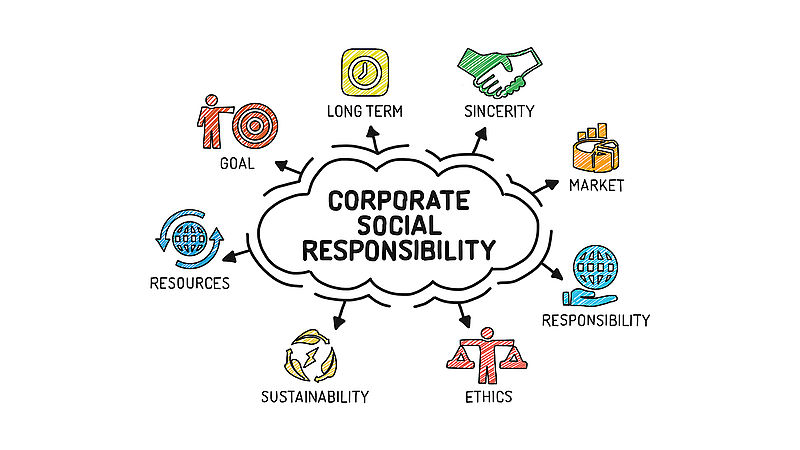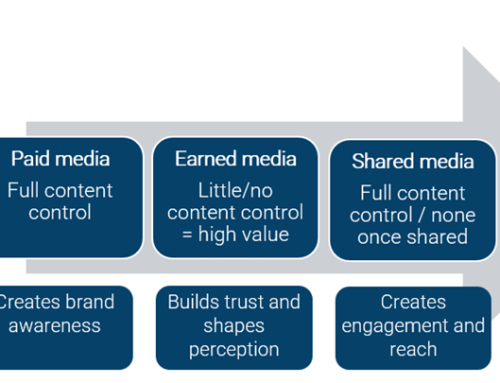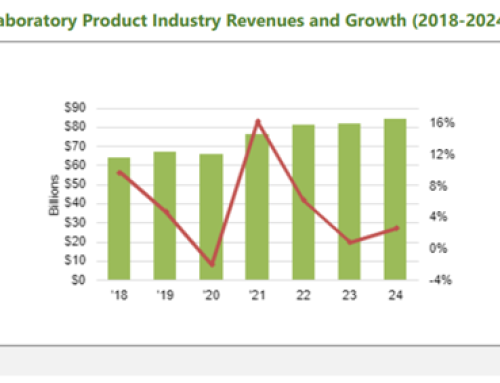What is corporate social responsibility?
There are plenty of jargon-filled definitions of corporate social responsibility (CSR) but, simply put, CSR is when companies engage in initiatives of a social nature, beyond the interests of the business. It links the marketplace, the workplace, the environment and the community and has shown to give companies a competitive advantage. Some CSR practices are required by law, such as equal opportunities policies based on disability, gender and so on, but many companies go a step further.

CSR is not simply charity work. Although this forms the core strategy of many company’s CSR policies, factors like employee treatment, ethical sourcing of materials and overseas worker’s rights rank highly in socially responsible activity.
Why is CSR important?
Popular issues supported by CSR schemes include:
- Domestic job growth
- Racial equality
- Women’s rights
- Cost of higher education
- Immigration
- Climate change
- LGBTQ rights.
According to the 2016 PwC Global CEO survey, 64 percent of CEOs claim that corporate social responsibility is core to their business, rather than being a stand-alone program. Results from surveys like these highlight the importance of businesses addressing social and environmental problems, and being vocal about it.
Effectively communicating your CSR programme
There are a number of advantages to making noise about your CSR activities. As well as drawing in potential customers and raising your profile, prospective employees are more likely to apply for jobs with organisations which share similar views or values. It is not the job of one person within a company to undertake socially-responsible activities, so in the same vein it shouldn’t be the sole responsibility of one person to communicate the great work being done. Some points to consider before initiating your CSR communication strategy are:
- Think about your goal and the action you want people to take
- Internal communication should come first, with any external communication being aligned and authentic to how your organisation behaves and operates every day
- What is your core CSR message? Ensure it is simple and aligns with your company’s overall communication strategy
- Which communication strategy would most effectively reach and engage your target audience? Often, social media is central to CSR programmes, but there are many other tools and tactics to consider, especially in b2b sectors
- Repetition is key. You can’t deliver your message in a single shot, so a continuous multi-channel approach is most effective.
Who does it well?
Probably the highest-profile company renowned for CSR initiatives is Microsoft. Placed on the Forbes 2017 list of companies with the best CSR reputations, Microsoft ranked second (behind Lego). This primarily stems from founder and former CEO Bill Gates’ ‘Bill and Melinda Gates Foundation’, which is well-known for its contribution to scientific research, particularly in tackling infectious diseases in developing countries to lessen the health burden.
TOMS® shoes is an example of a smaller company doing big things for charity. Founded in 2006 by Blake Mycoskie, TOMS pledges to donate a pair of shoes to those in need for every pair sold in its stores, through its ‘One for One’ campaign. In addition to this, TOMS offers shoes with sustainable and vegan materials, and all shoe boxes are made from 80% recycled post-consumer waste and are printed with soy ink.
CSR may seem like an activity only relevant to b2c companies, particularly owing to the focus on the ‘ethical consumer’, but b2b companies can benefit too when initiatives are closely related to core business strategies. An example of successful b2b CSR activity is from Systematic, a global privately owned Danish software company providing solutions to the defence, healthcare, financial and public sectors. Systematic participates in several innovation projects, one of which is aimed at developing an electronic patch enabling monitoring and registering of patients while doing daily chores, thereby constantly monitoring their health. This gives the patients a sense of security. Systematic makes software available for the project for free during the developmental stage.
CSR trends for 2018
There is now a certain expectation for companies to incorporate their employees’, customers’ and communities’ values into their DNA. Forbes has compiled a list of likely CSR trends for 2018:
- Addressing workplace inequality – the #MeToo campaign took hold in 2017, bringing to light the issue of sexual harassment and disempowerment of women in certain industries. 2018, which marks 100 years in the UK since some women got the right to vote, is likely to see more concrete action taking place to reduce the real or perceived gender gap across sectors.
- Climate resilience – 2017 saw an unprecedented number of natural disasters across the globe, in high-risk regions such as the Caribbean, as well as in areas not normally considered at risk. It is now becoming apparent that few companies will be unaffected by climate change so, in 2018, organisations are likely to invest in innovative technology, redefine business models, and support policies that can address critical climate-related challenges.
- More CSR from the C-suite – according to research from Boston College Center for Corporate Citizenship (BCCCC), the number of companies directing corporate citizenship from the C-Suite has increased by almost 75 percent compared to five years ago.
Those organisations which do not engage in some degree of CSR activity may well find themselves left behind the competition. A lot has been said about millennials in the past year or two, but these prospective employees are more likely to take a company’s social responsibility activity into account when job hunting than previous generations. With millennials comprising an increasing majority of the workforce, CSR will become more important than ever.
Here at The Scott Partnership, we don’t just help companies market their products and services, we highlight the importance to brand building of communicating all company activities and values – CSR included. As an SME, we don’t ignore our social responsibilities either. We donate to our chosen local charity the Calvert Trust – supporting their work in delivering outdoor activities to children with disabilities – and our Managing Director has worked as a volunteer ambassador for the Media Trust, which helps match charities needing communications support with volunteers. Our Board is 66% female, which, although not unusual in creative industries, puts us ahead of many global businesses that are unable to demonstrate good gender diversity, especially at senior levels. Additionally, we offer paid internships as an excellent way in to a career in marketing, supporting students looking to make the step between university and full-time work.
If you would like to find out more on how to promote your CSR programme, give us a call on +44 (0) 1477 539539 or email [email protected].
By Lizzie Randall, Senior Account Executive at The Scott Partnership.





